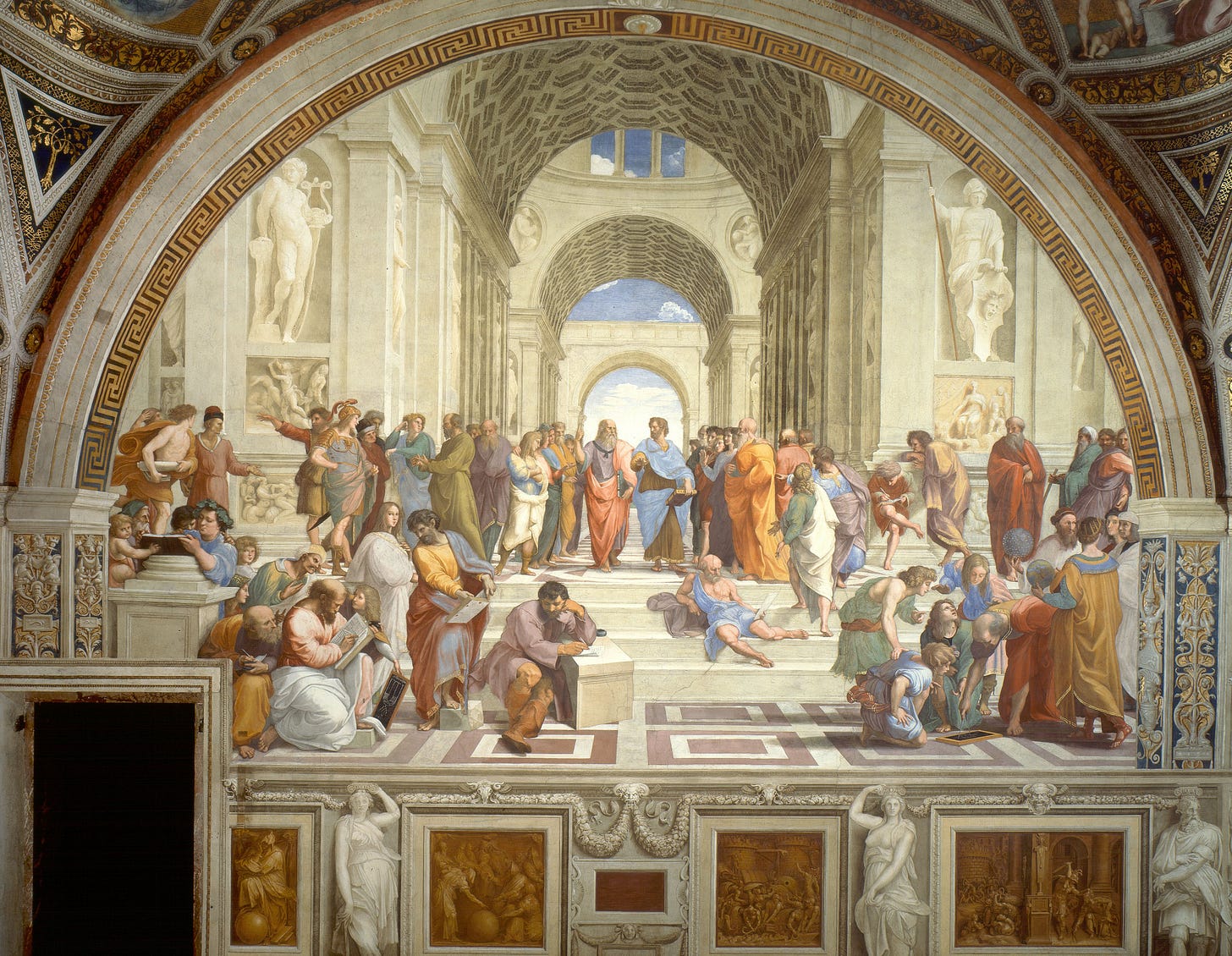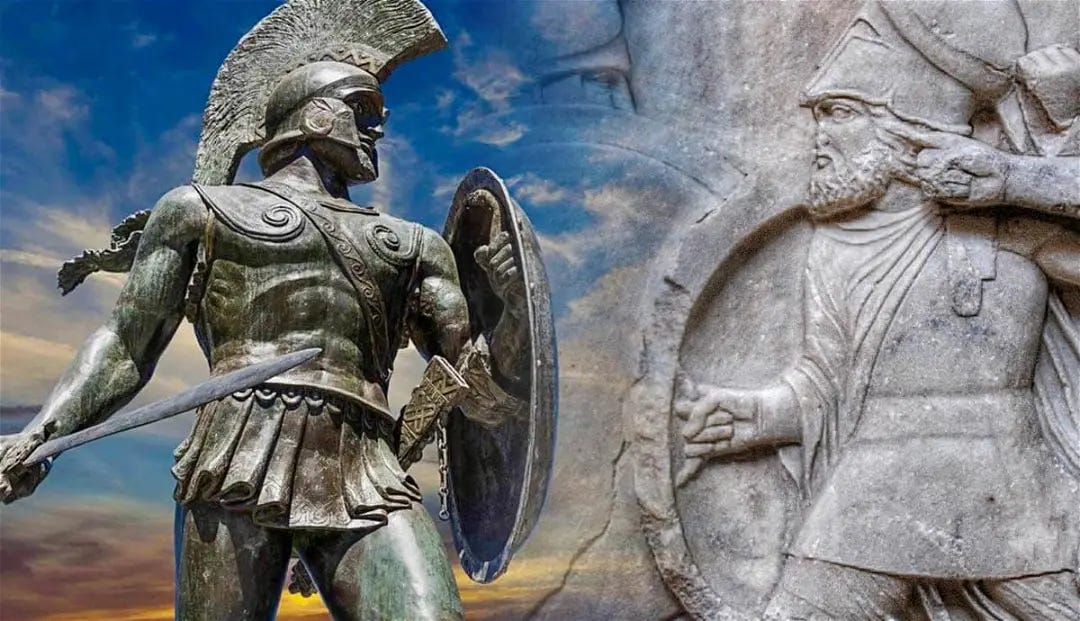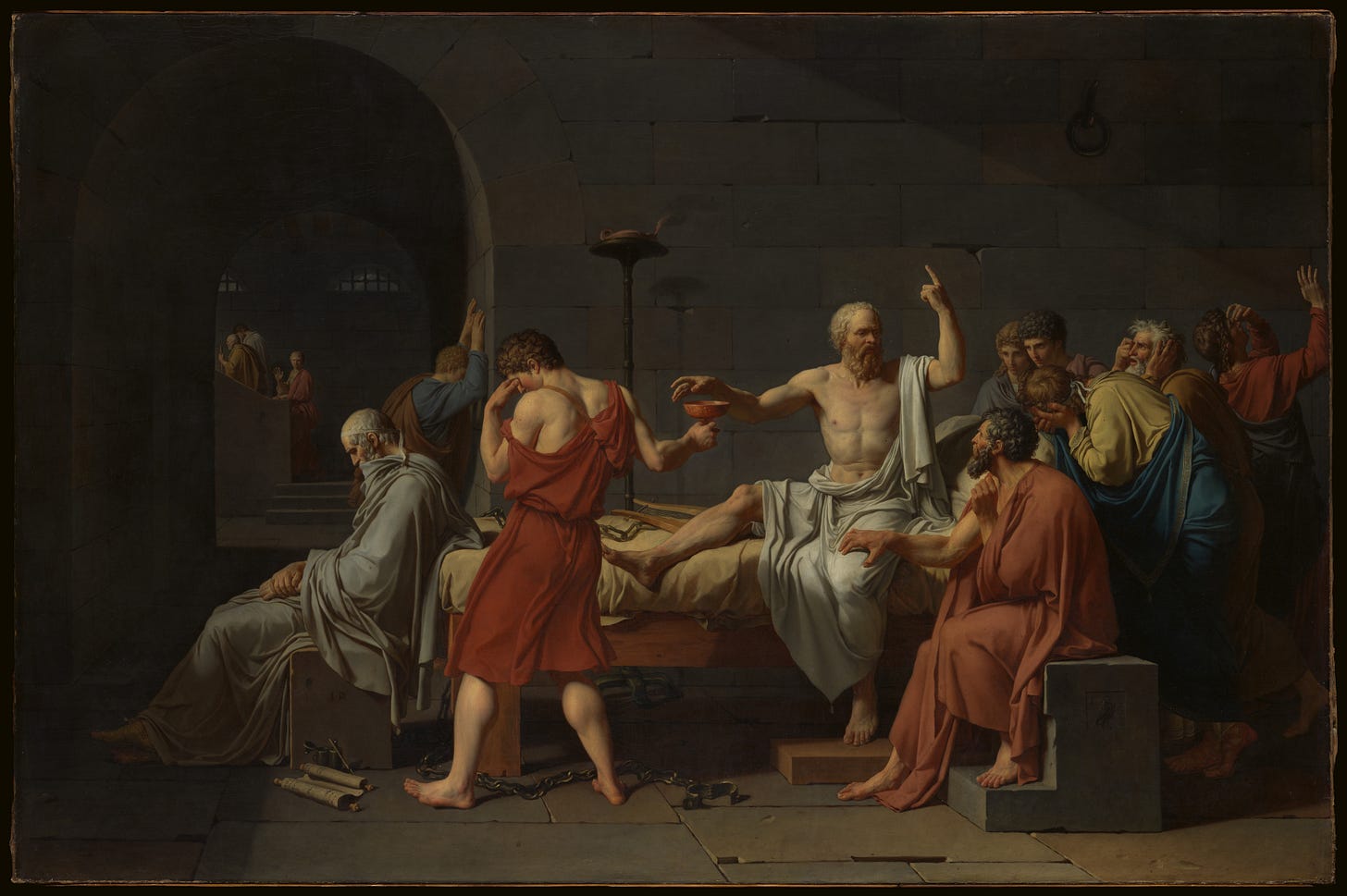The year is 399 BC. The city, Athens. On this day, the society that invented philosophia – the love of wisdom – will kill its wisest man.
Socrates’ relentless pursuit of truth was famous. The Oracle of Delphi couldn’t have been clearer: “No man is wiser than Socrates.” But for all his wisdom, he upset the wrong men. Whether it was the Sophists or the Natural Philosophers he had attacked, or simply another member of the Ekklesia he had embarassed, powerful men began to plot against him. Those men convinced Lycon, Anytus, and Meletus to accuse Socrates of atheism and corrupting the youth of Athens. They convinced enough of the 500 jurors to find him guilty. The guilty decision was close; the death sentence was overwhelming.
Socrates’ death is famous not just for the fact that he died – we all die – but for the fact that he chose to die. He was offered a fine if he would stop philosophizing. He didn’t just refuse; he insulted the jury, knowing they’d kill him for it. His friends implored him to run away. His conviction that “the unexamined life is not worth living” was so strong that he chose to drink the hemlock. He chose to die for his ideals.
2,500 years after Socrates, I grew up a skater, stoner kid in Hollywood. My society was so far from philosophia that I can’t imagine how they came from the same history. Wanna-be celebrities, plastic body parts, and fake mansions were the idols of the day. In true teenage fashion, I fancied myself the anti-hero to this consumer hellscape, drawing inspiration from Rancid, Bucky Lasek, and my corner philosopher/weed dealer.
I wasn’t for anything; only against everything.
I’d heard of Socrates’ death. It was another fact in a boring history lesson that meant nothing to me. Yet in a few years, Socrates’s death would save me from my downward spiral through nihilism into an early grave
Somewhere along the way, I heard the call. I can’t say whether it was the death of a close friend, hit by a car while trying to help a stranger change a tire, or a slow realization that my weed dealer wasn’t actually as cool as he thought he was. There may not have been a burning bush, but there was still a definite call. Something needed to change.
That something turned out to be the Navy. I joined right after 9/11, sensing an opportunity to rethink myself. At the Naval Academy, I learned “Dulce et decorum est pro patria mori” (it is sweet and fitting to die for one’s country). The first time I recited that phrase, I scoffed. A week later, I had it memorized. I was morbidly curious about ancient Sparta. Within weeks, the 300 Spartans who fought Xerxes at Thermopylae served as my teachers, inspiring daring escapades like riding the goat statue naked (don’t ask) and stealing small prizes from other companies. They taught me to be cunning, love the risk, and embrace the punishment when I got caught. I saw the Spartan apsis – their round shields which defended the man next to them – and felt the weight of my brothers in arms. I learned to fight.
“Death before dishonor” rang in my ears, just as the marching drums had centuries before. I sat in humbled reverence as I watched Admiral Stockdale lowered into the ground, his struggle finally over 41 years after he refused to be sent home early from a Vietnam POW camp. That decision had cost him seven years at the Hanoi Hilton. His body still showed the scars of that conviction. I cried as they closed his casket like I imagined Plato had cried after Socrates lay to rest.
My worldview was changing.
That new worldview served me well. For the first time I could remember, I had happiness, fulfillment, even brotherhood. I wrapped myself in the system, devoting myself to its ideals of freedom, equality, and truth. I saw my story. I wanted to be the hero. And I was willing to do what it took.
Getting there meant a thousand sweaty workouts, a hundred hours studying tactics, and every day dialing in my one moral compass. Enter Socrates. For the first time, I truly contemplated his death. I felt like I had found my kindred spirit. I did more than care this time, I embodied him. His conviction that truth was worth dying for reinforced my conviction that my service was worth the sacrifices I was making. I had my way.
But the search for truth never stops. So often, what helped us spread our wings starts to feel like a cage, and we feel the bars pressing into us as we keep growing.
I watched friends lose their eyes, their legs, and their happiness to the jaws of never-ending war. Physical signs were hard enough to deal with. The buddy who had previously disarmed bombs couldn’t walk around town without a seeing eye dog. The classmate who had been a national champion marathoner now had two prosthetic legs. Other friends were single dads, unsure how to maintain a relationship with their exes or their children after years of being gone.
The mental signs were even harder. That buddy’s seeing eye dog died. A brother I had flown with committed suicide, haunted by the demons of pain, trauma, and his inability to live up to the perfection we devoted ourselves to. In that moment, he was forgotten – for the sin of being weak. “Dulce et decorum” rang hollow. Maybe Wilfred Owen was right where Horace had gotten it wrong.
At the same time, the outside world grew tired of hearing about the longest war in American history, and I started to doubt my part in it. But I didn’t know how to relate to that outside world either. 15 years after I had answered the call, everyone had moved on without me. I felt let down by the service I had devoted myself to and cast out from the society I thought I was serving. I tried to turn back to my ideals which once saved me. They hid in silence. The only voice was the siren song of Nihilism. And I didn’t have a reply.
Right on cue, Socrates answered.
Socrates hadn’t loved obedience or service; he loved truth. He hadn’t said, “Know thy place.” He’d said, “Know thyself.” I hadn’t known myself in a long time, but I was ready to.
In the depths of my darkness, I let out my own meek call. It started with books. I read everyone from Viktor Frankl to J.K. Rowling, even Tim Ferris. They talked, and I listened. Eventually I opened up to others: a therapist, a coach, many medicine healers, and eventually family. This time I talked, and they listened. I slowly formed a personal community of people who want to come on this journey with me. Now we all talk and listen. With all of them, I found I had some crazy ass ideas that I’d buried. Maybe it was time to unbury them. There was still hope, as small as it was.
With help, I realized I hadn’t wasted my time honing my devotion to an ideal; I had honed myself to seek the right ideals. I may have silenced my other values: love, beauty, and peace, but I hadn’t left them behind. A powerful voice opposed the sickly sweet melody of cynicism.
“Find out what is true. Devote your life to it. Live as if it’s worth dying for.”
It certainly hasn’t been easy. Jealousy rips me off the path. Friends get promotions, funding, and followers, yet I’m still unsure what I am. I love sitting around our family table, laughing for hours at the kids’ jokes while our food gets cold, but I wonder if this is my answer or a distraction from my search. I can’t filter everything through the lens of “would I die for this?” It’s too heavy — paralyzing even. Would I die for ice cream on a hot day? No. Is it worth stealing licks of my daughter’s vanilla ice cream with rainbow sprinkles in the waffle cone as big as her head? Hell yes.
It’s helped to learn more about Socrates. I thought I was searching for an object, my own tablets engraved on Mount Sinai. But Socrates was talking about an activity – Aletheia. He was holding onto an ideal, devoting himself to it daily, changing with it. Truth in his world was the act of remembering, getting closer to his ideal with every action. A closer word for us might be veracity: a devotion to and ability to perceive that which is true. Asking the question – “Would I die for this?” – is my regular act of devotion. And it’s starting to bear fruit.
As I share my search, others are responding. Many of us are tired of trying to improve at the margins while the essence eludes us. We’re discarding our Oura health score and our daily running logs, replacing them with the ideals of our ancestors. And where philosophia has fallen short, we’re creating something new, something for our generation. As for my part, I haven’t found my happy ending. Yet.
At my best, I’m grateful to others I don’t understand. Like Rumi’s preacher, I’m reminded of what I don’t want to be. I may be opposed to something, but I’m also not the same kid. I know I can be for something too. Even while I can’t tell you what that something is, I still ask myself what’s worth dying for. I hear far off whispers. And I have my ideal.
I remember Socrates, drinking that hemlock, lying down in that field surrounded by friends, closing his eyes one last time. I wonder what it felt like to die for truth. His story isn’t my answer. It’s my inspiration to keep asking.
So I ask you, what will you die for?
This essay wouldn’t be a shadow of what it became without the help of so many great people. I’m indebted to
, , ,, Edward of , and the incredible for the help, discussions, and many edits as I worked out how to say what was in my heart.







I never cease to be challenged by your essays, Latham. They force me to think deeply and engage on topics. Thank you for this structured, evocative conversation into deep territory.
Too much to re-quote. But I love this "I realized I hadn’t wasted my time honing my devotion to an ideal; I had honed myself to seek the right ideals."
WOW such a powerful piece Latham, thank you for opening up, putting this down on paper and sharing it with us. I related to so many pieces in this and also found myself wondering about my own pursuits in life. Ok, now here's a series of quotes I couldn't help but pulling because they just hit different!
"So often, what helped us spread our wings starts to feel like a cage, and we feel the bars pressing into us as we keep growing." Gah, I've felt this before and it's a hard thing to realize that the thing that got you to this point isn't the thing that will get you to the next one.
This resonated: "Socrates hadn’t loved obedience or service; he loved truth. He hadn’t said, “Know thy place.” He’d said, “Know thyself.” I hadn’t known myself in a long time, but I was ready to."
I wonder this too: "I love sitting around our family table, laughing for hours at the kids’ jokes while our food gets cold, but I wonder if this is my answer or a distraction from my search." Though, I do always use happiness as a check in metric. But it's always a balance. I loved your example with your daughter and the ice cream!
"Many of us are tired of trying to improve at the margins while the essence eludes us. We’re discarding our Oura health score and our daily running logs, replacing them with the ideals of our ancestors" SO WELL SAID